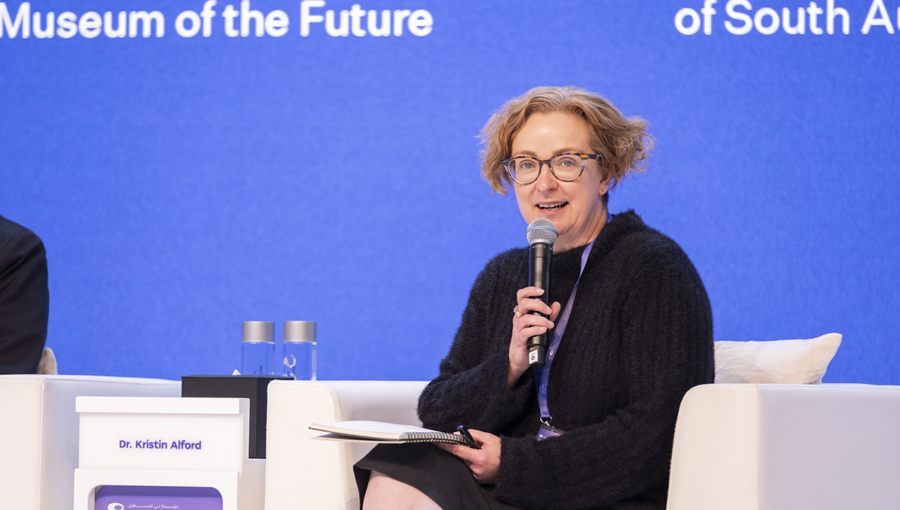A huge volume of realistic simulations of the future are needed to give people agency to contribute to building a better world for the next generation, according to experts speaking today at the Dubai Future Forum.
During a panel session titled ‘Why Experiencing the Future Will Save Humanity’, Brendan McGetrick, Creative Director at the Museum of the Future, where the Forum is taking place, said: “[Experiences of potential future scenarios] establish that the future is something we create together, and you can contribute to that, and in fact we need you to contribute.”
The session explored how creating realistic experiential futures, like those seen in the Museum of the Future, can inspire and empower people to reimagine and build the future.
The Museum of the Future offers the unique opportunity for visitors to experience a potential future. Travelling to the year 2071, visitors interact with technologies such as virtual and augmented reality and are immersed in interactive experiences that challenge them to ask questions about the future of humans, cities, societies, and life on Earth – and whether we can become an interplanetary species.
McGetrick told delegates: “Many of the interactions and environments we have created at the Museum of the Future must be completed by the visitor. They are incomplete until you interact with them, and you make a commitment. The defining theme of all of them is that a better future is possible with your help. Experiences of the future put people in a position to have a stake and to make a decision. You force that urgency and agency on people.”
Dr. Stuart Candy, Director, Situation Lab at Carnegie Mellon, commented: “As a global community, we need to continue to institutionalize foresight. The Dubai Future Forum is significant because it is at the intersection of cultural and institutional strategies. Approaches for institutionalizing foresight are much needed – alongside those of acculturation.”
Also on the panel was Dr. Jake Dunagan Research Director, Institute for the Future. He urged fellow futurists to design experiential futures “to generate authentic, meaningful reactions”. “The human mind is a prediction engine,” he said. “Experiences test our top-down mental maps of the world and allow us to update those maps to better fit a changing reality.”
The Dubai Future Forum, running from 11-12 October, is the world’s largest global gathering of futurists. It is hosting more than 400 international participants including technology experts, scientists, innovators, and specialists in various high-skilled fields to exchange knowledge and create a global platform on which to discuss and debate the future.
Realistic Simulations of the Future Inspire People to Build a Brighter Tomorrow
Scroll down to post content
